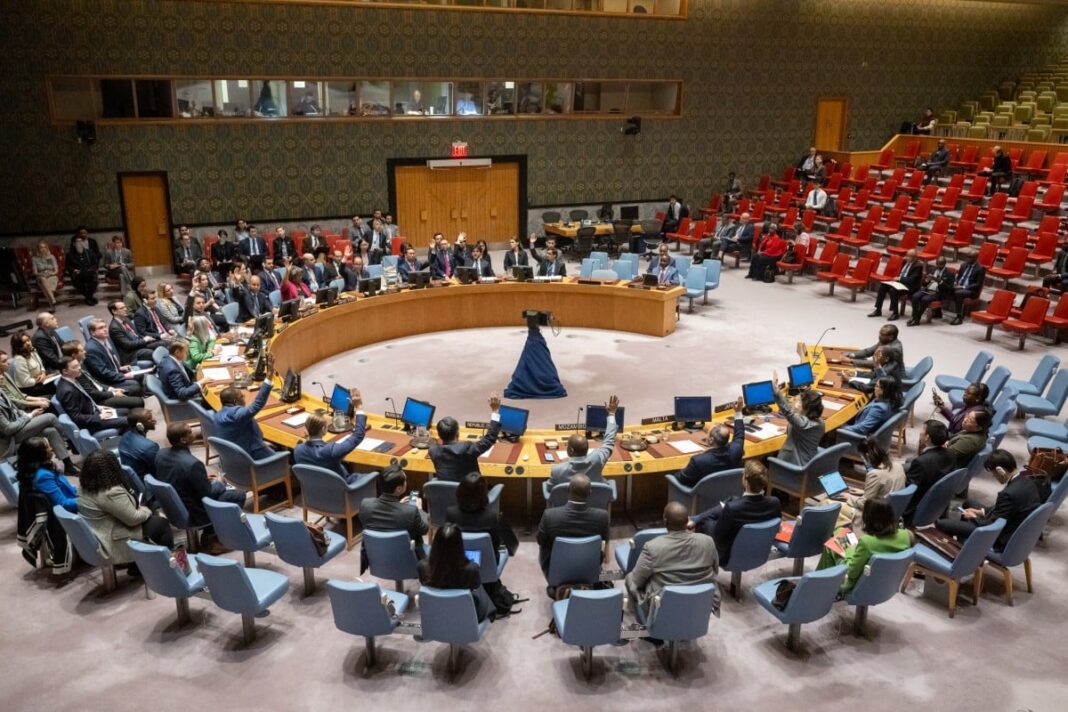The Philippines is campaigning for a non-permanent seat on the United Nations Security Council (UNSC). In order to strengthen its diplomatic efforts to address rising tensions in the South China Sea. They caution that China’s influence as a permanent UNSC member, with veto power, could limit these efforts.
Philippines Highlights Rule of Law and Multilateralism
In a speech at the United Nations General Assembly (UNGA) in New York, Philippine Foreign Affairs Secretary Enrique Manalo made the country’s case for a UNSC seat. He emphasized the importance of the rule of law and the integrity of multilateral systems in dealing with global issues.
“Amid the current global challenges, the rule of law and the integrity of the multilateral system must prevail,” Manalo said on Sunday. He added that President Ferdinand Marcos, Jr., had affirmed multilateralism as the best way to tackle collective global challenges.
In September, Manalo announced the Philippines’ plan to seek a non-permanent seat for the 2027-2028 term. The vote is scheduled for mid-2026, and the Philippines will need a two-thirds majority from the UN General Assembly to secure the seat.
Diplomatic Leverage Amid Rising South China Sea Tensions
The Philippines has been at the center of rising tensions in the South China Sea. An area rich in resources and claimed by several countries, including China. While Manila has long relied on diplomatic and peaceful means to address these disputes. A seat on the UNSC could provide a platform to raise its concerns internationally.
Manalo alluded to the South China Sea conflict during his speech, without naming China directly. “Despite irresponsible and dangerous actions against our legitimate activities within our own waters and exclusive economic zone (EEZ). The Philippines remains committed to diplomacy and other peaceful means,” he said.
Observers warn that China, as a permanent UNSC member with veto power, may hinder Manila’s efforts. If Philippines attempts to address these disputes at the council.
A Strategic Move in Philippines Foreign Policy
Analysts believe that seeking a seat on the UNSC is a strategic decision in line with the Philippines’ broader foreign policy. It can be considered as Manila’s bid is consistent with its goal of internationalising its maritime disputes with Beijing.
“This highlights Manila’s role as a responsible member of the international order, observant of international law, norms, and principles,” Piasentini said. He added that a seat on the UNSC would provide opportunities for informal consultations and dialogue. This will potentially give the Philippines more room to pursue its interests.
But the presence of China on the UNSC remains a significant obstacle. Piasentini noted that China could veto any resolution Manila might propose concerning the South China Sea. Thus limiting the council’s ability to act.
Potential Benefits Beyond the South China Sea
Despite the challenges, securing a UNSC seat could offer benefits to the Philippines beyond its maritime disputes. The council is a key platform for addressing global security issues. Its membership could elevate the Philippines’ influence on a range of topics, from peacekeeping to counterterrorism.
Manalo highlighted the Philippines’ longstanding commitment to the United Nations. By including its participation in UN peacekeeping missions and other initiatives. “The Philippines is a trusted partner, innovative pathfinder, and committed peacemaker,” he said during his UNGA speech. Manalo highlighted the country’s contributions to the global community. Even if China’s veto power is a limitation, the Philippines could still use its seat to raise important issues.
China’s Influence and the Reality of Veto Power
China claims most of the South China Sea under its so-called “10-dash line,” which overlaps with the Philippines’ EEZ. In 2016, an international tribunal ruled in favour of the Philippines. It rejected China’s claims as inconsistent with international law. Beijing has refused to recognise the ruling, continuing its activities in the contested waters.
Philippines has been successful in bringing attention to its claims. But Manila must remain realistic about its chances of resolving these disputes through the UNSC. Piasentini echoed this, noting that great powers with veto privileges are often difficult to deter. He pointed out that similar situations, like Russia’s invasion of Ukraine or the US vetoing a resolution on Palestine’s statehood in 2024. This shows the limits of the council’s ability to act.
A Diplomatic Play for the Long Game
Despite these challenges, observers say that the Philippines’ bid for a UN Security Council seat could still help it in the long run. By highlighting which countries are acting responsibly, the Philippines can shape the international narrative.
Piasentini suggested that even if China uses its veto, this could be part of the Philippines’ strategy. This may very well be what the Philippines aims for – to show which of the two is acting responsibly for the sake of international peace and stability.
In any case, Manila’s campaign for a seat on the UNSC signals its determination to remain a key player in global diplomacy. While continuing to defend its rights in the South China Sea.

